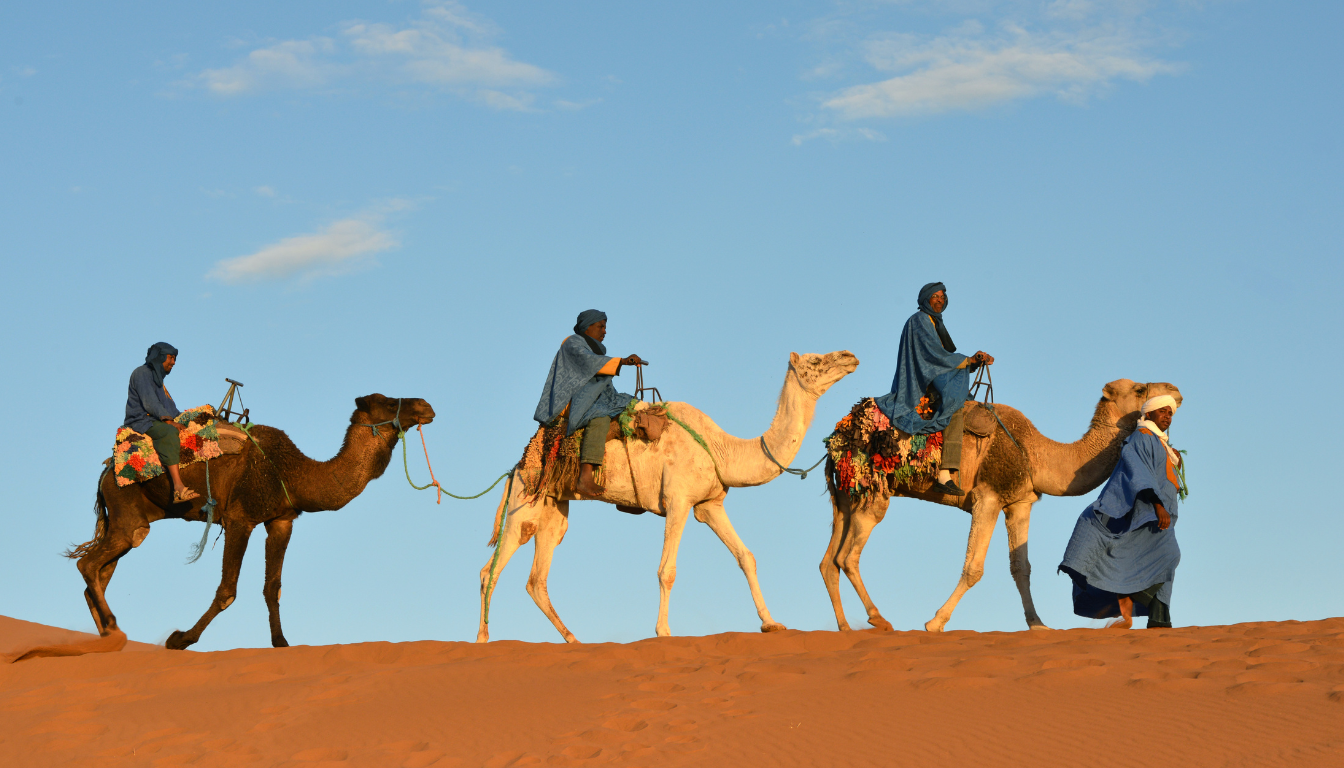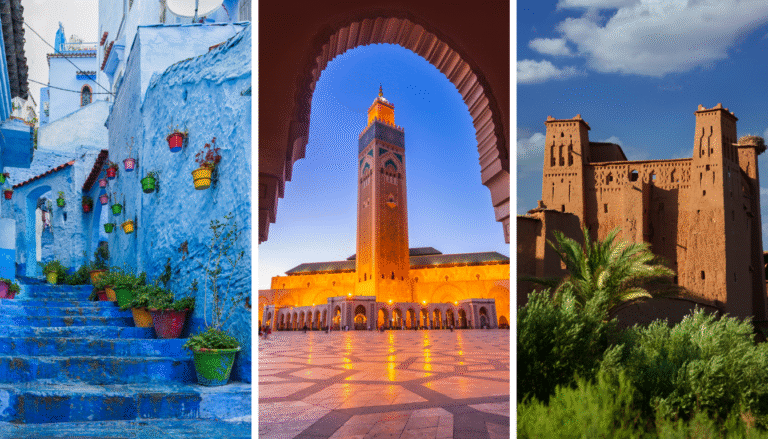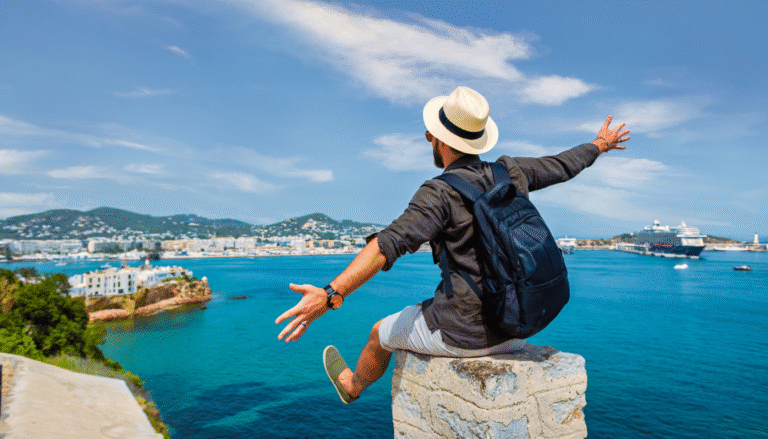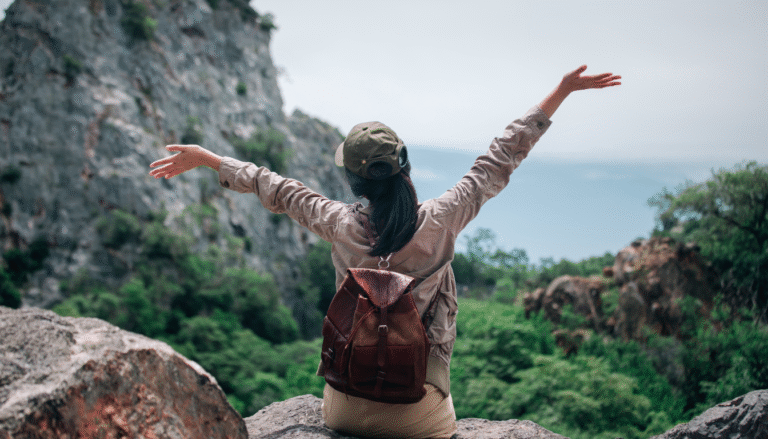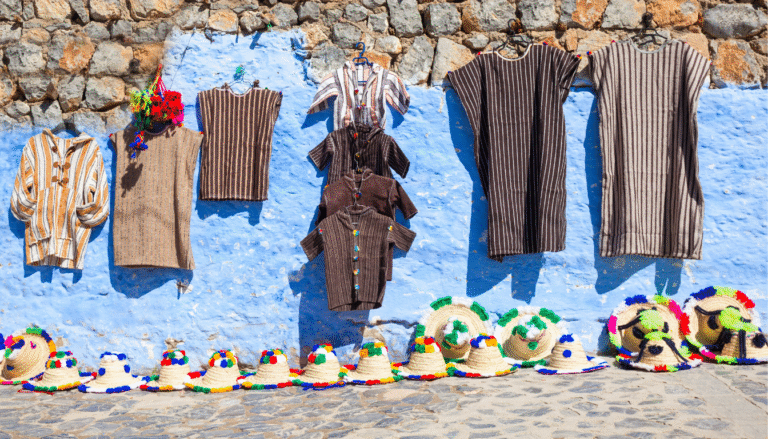How to Travel Responsibly in Morocco (And What to Avoid)
Did you know Morocco gets over 13 million tourists a year? It’s one of the top spots in Africa. This many visitors affects the local environment and communities a lot.
When you’re planning your trip, think about how your actions impact Morocco. Traveling with a conscience means you respect local customs, don’t harm the environment, and help local businesses.
By choosing responsible travel practices, you help keep Morocco’s culture and nature safe. In this article, we’ll show you how to travel right in Morocco and what to steer clear of.
Understanding Morocco’s Cultural Landscape
Before you travel to Morocco, it’s key to grasp its cultural scene. Morocco’s culture is a mix of Arab, Berber, and European styles. This mix comes from its history and geography.
The Blend of Arab, Berber, and European Influences
Morocco’s culture is a special mix of these styles. You can see it in its buildings, food, and traditions. The blend of cultures is shown in the lively souks, tasty local dishes, and the friendly Moroccan people.
A traveler once said, “The souks in Marrakech are a sensory overload in the best possible way, a true reflection of Morocco’s rich cultural tapestry.“
Religious Customs and Their Impact on Daily Life
Religion is big in Morocco, with Islam being the main faith. It’s important to respect local religious customs while traveling. This means dressing properly, like wearing modest clothes, when visiting mosques or rural spots.
Urban vs. Rural Cultural Differences
There’s a big difference between city and country life in Morocco. Cities like Marrakech and Fez have modern things, while rural areas keep traditional ways alive. Knowing these differences helps you understand local customs better.
By embracing these cultural details, you show cultural respect and have a deeper experience in Morocco. Traveling responsibly not only makes your trip better but also helps the local communities you visit.
Travel Responsibly in Morocco: The Fundamentals
Morocco is a country with a rich culture and beautiful landscapes. It’s important to travel there thoughtfully. Understanding the basics of responsible travel is key.
What Makes Travel “Responsible” in the Moroccan Context
Traveling responsibly in Morocco means being mindful of your impact. It’s about using sustainable practices and respecting local customs. This way, you can travel without harming the environment or the people.
The Impact of Tourism on Local Communities
Tourism can greatly affect local communities. It can bring in money, but it can also lead to cultural harm if not done right. By supporting local businesses and participating in community-based tourism, you can make a positive difference.
Setting Ethical Intentions for Your Journey
Before you go, think about your travel goals. Aim to travel responsibly by being mindful of your use and respecting the environment. This approach will make your trip more meaningful and help the places you visit.
By following these guidelines, your trip to Morocco will be more authentic and beneficial. You’ll support the local economy and help protect the environment.
Preparing Before You Go
Before you start your Moroccan adventure, it’s important to get ready. Knowing and respecting local customs can make your trip better.
Researching Local Customs and Taboos
Doing your homework is key to not offend anyone. Morocco is a place with deep cultural and religious roots. Knowing the customs and taboos helps you act respectfully in everyday life.
| Custom | Description | Tip |
|---|---|---|
| Dress modestly | Cover shoulders and knees | Pack loose, comfortable clothing |
| Remove shoes | Before entering mosques or homes | Wear easy-to-remove shoes |
| Use right hand | For eating and giving/receiving items | Practice using your right hand for daily tasks |
Learning Basic Arabic or Berber Phrases
Learning a few basic phrases in Arabic or Berber shows respect for the culture. Saying “As-salamu alaykum” (peace be upon you) can make a good impression.
Packing Consciously for Cultural Respect
Packing smartly is more than what you wear. It’s also about thinking about your impact. Choose eco-friendly travel options and products.
By getting ready ahead of time, you can have a more responsible and respectful trip in Morocco.
Respectful Dress and Behavior
Dressing right and acting respectfully are important for responsible travel practices in Morocco. Knowing the local customs helps you avoid causing offense. It also makes your trip more enjoyable and meaningful.
Appropriate Clothing for Different Settings
Morocco is a conservative country. Dressing modestly is key, mainly in rural areas or mosques. Women should cover their shoulders and knees and wear modest clothes. Men should also dress modestly, avoiding shorts and sleeveless shirts in conservative places.
- Cover your shoulders and knees when visiting mosques or rural areas.
- Avoid revealing clothing to show respect for local customs.
- Consider the local dress code when choosing your attire for different settings.
Gender-Specific Considerations
Both men and women should think about their dress and behavior. Women should dress more conservatively to avoid unwanted attention. Men should also be respectful, avoiding public displays of affection and dressing modestly.
- Dress conservatively to avoid unwanted attention.
- Be mindful of public behavior, such as avoiding displays of affection.
- Understand that local customs may vary between urban and rural areas.
Public Behavior and Etiquette
Being aware of public behavior is key in Morocco. Avoid public displays of affection, as they are generally frowned upon. Also, be respectful when interacting with locals, using polite language and gestures.
By respecting local customs and norms, you show cultural respect. This makes your trip more enriching. It also supports ethical travel morocco practices.
Sustainable Accommodation Choices
Choosing where to stay in Morocco can make a big difference. It affects the local environment and community. Think about the impact of your choice.
Eco-Friendly Riads and Hotels
Morocco has many eco-friendly riads and hotels now. They mix old architecture with new green tech. You’ll see solar panels and systems for catching rainwater.
Community-Based Homestays
Homestays let you dive into local culture and help the economy. They’re run by families who care about the planet.
Water Conservation Measures
Many places in Morocco save water. They use special showerheads and toilets to use less water.
Waste Management Approaches
These places also manage waste well. They recycle and cut down on plastic use.
Local Employment Policies
Choosing these places helps the community. It supports jobs and helps the area grow.
| Sustainable Practice | Eco-Friendly Riads | Community-Based Homestays |
|---|---|---|
| Water Conservation | Low-flow fixtures | Rainwater harvesting |
| Waste Management | Recycling programs | Composting |
| Local Employment | Staff training programs | Community-led tours |
Choosing sustainable places to stay helps Morocco’s tourism. It makes a difference. Think about these options for your next trip.
Responsible Transportation Options
Choosing the right transportation in Morocco can make your trip better for the planet. As you explore this beautiful country, you’ll find many options. They meet different needs and preferences.
Low-Impact Ways to Explore Cities
Morocco’s cities are best seen on foot or by bike. This lets you enjoy the local culture and lively atmosphere. Many cities have areas perfect for walking, making it a eco-friendly way to find hidden spots.
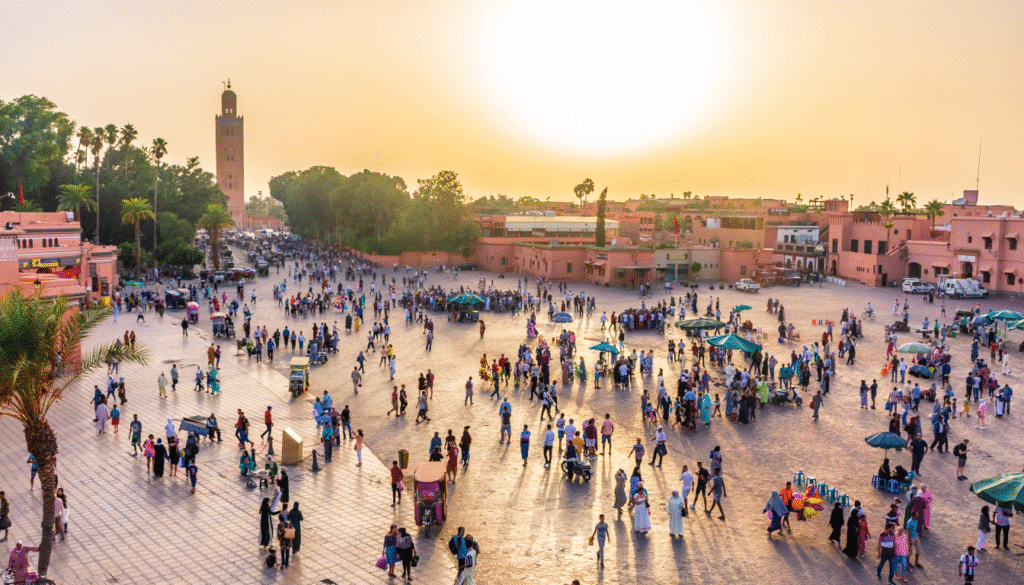
Shared Transport vs. Private Vehicles
For longer trips, think about shared transport like buses or shared taxis. It’s cheaper and better for the environment than private cars. You get to see local life and help with sustainable tourism practices.
Desert Tours: Choosing Ethical Operators
For desert adventures, pick tour operators that care about the environment. Look for those using eco-friendly methods, like solar camps and waste reduction. This way, your desert trip supports responsible travel practices.
By choosing wisely, you help make tourism in Morocco more sustainable. This makes your trip better for you and others.
Supporting Local Economies Through Community-Based Tourism
Morocco’s rich culture can be seen up close through community-based tourism. This way of traveling helps local communities and enriches your journey. It also boosts the economy of the places you visit.
Shopping at Women’s Cooperatives and Artisan Workshops
Shopping at women’s cooperatives and artisan workshops helps local economies. These places empower women and keep traditional crafts alive. Buying from them means your money goes straight to the makers.
Fair Haggling Practices in Souks
In souks, fair haggling is key. First, find out the usual price of what you want. Be polite and ready to leave if the price isn’t fair. This keeps the haggling friendly and respectful.
Identifying Authentic Handicrafts
To buy real handicrafts, look for these signs:
- Unique, handmade items that show off Moroccan skills.
- Signs of authenticity, like certificates or stamps from local makers.
Berber Carpets and Textiles
Berber carpets are famous for their detailed designs and quality. Think about the materials, how it’s made, and its story when buying.
Pottery and Ceramics
Moroccan pottery and ceramics stand out for their bright colors and old techniques. Choose items made in a way that’s good for the planet.
Leather Goods from Fez
Fez is known for its leather products, like bags and shoes. Pick items made from top-notch, eco-friendly leather.
By choosing community-based tourism and smart shopping, you help the local economy. You also help keep Morocco’s culture alive.
Ethical Food and Dining Practices
Morocco’s food is more than just delicious; it’s about respecting local culture and the environment. When you try the local cuisine, think about how your choices affect things.
Eating at Family-Owned Establishments
Choosing family-owned restaurants helps local economies. These places serve traditional dishes with love, giving you a true taste of Morocco. By doing this, you support responsible travel practices that help the community.
Understanding Food Waste Issues
Food waste is a big problem in Morocco, like many places. You can help by ordering right and enjoying what you get. This small action supports sustainable tourism morocco efforts.
Water Conservation While Dining
Water is precious, and Morocco needs to conserve it. Be mindful of your water use when eating out. Simple steps, like asking for more water when needed, help a lot. This action follows ethical travel morocco values.
Environmental Conservation Initiatives You Can Support
Morocco’s diverse ecosystems face many challenges. Your support for conservation can make a big difference. As a responsible traveler, you can help preserve Morocco’s natural beauty.
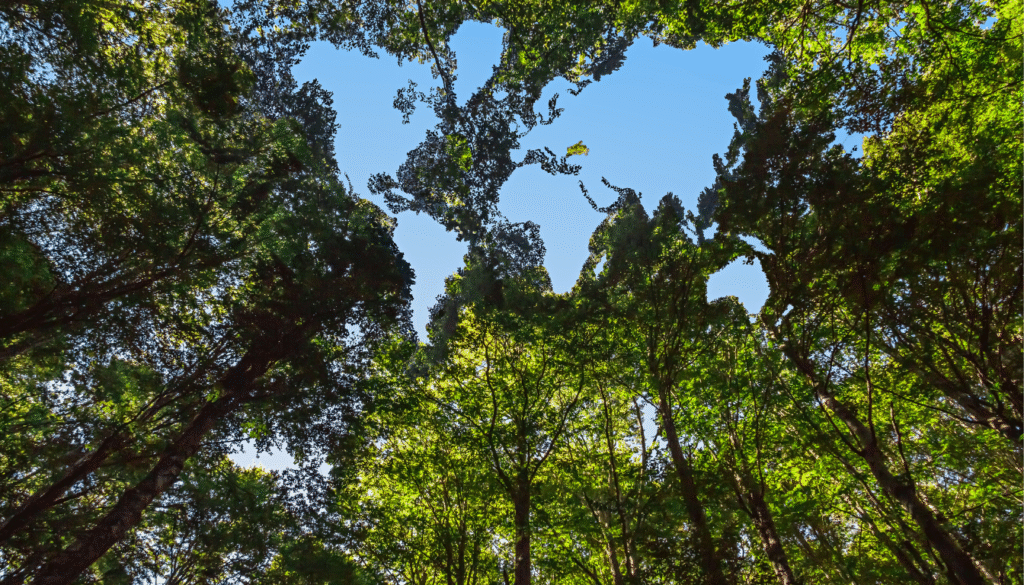
Protected Areas and National Parks
Morocco has many protected areas and national parks. The Souss-Massa National Park is one, where endangered species like the Northern Bald Ibis live. Visiting these parks helps conservation and supports biodiversity.
Beach and Desert Clean-Up Programs
Many groups in Morocco clean up beaches and deserts. You can join the Moroccan Coastal Cleanup to help keep Morocco’s landscapes clean.
Sustainable Water Management Projects
Water conservation is key in Morocco, where water is scarce. Supporting projects like rainwater harvesting can greatly help the environment.
Wildlife Protection Efforts
Morocco has a wide variety of wildlife, including endangered species. You can help by visiting wildlife sanctuaries or donating to organizations that protect Morocco’s animals.
Supporting these environmental efforts not only helps Morocco’s ecosystems but also makes your trip more meaningful. Think about supporting local groups and joining conservation activities during your visit.
- Research local conservation initiatives before your trip.
- Participate in clean-up programs or volunteer with conservation organizations.
- Support eco-friendly tour operators that follow sustainable practices.
Respecting Sacred and Historical Sites
Morocco’s culture is deeply tied to its sacred and historical sites. These places show the country’s rich history. As you explore Morocco, you’ll see many mosques, ancient monuments, and landmarks. They are key to the local culture and Morocco’s heritage.
Mosque Etiquette for Non-Muslims
Visiting mosques requires respect for Islamic customs. Remove your shoes before entering and dress modestly. Some mosques may not welcome non-Muslims, so check first. Following these rules shows respect for the local culture.
Visiting Ancient Monuments Responsibly
Morocco has many ancient monuments, like the ruins of Volubilis. Be careful and don’t touch or damage the structures. Hiring local guides can also enrich your visit and support the local economy.
Supporting Heritage Conservation Efforts
Many historical sites in Morocco need care to stay intact. Think about supporting local conservation efforts. Your help can greatly aid in keeping Morocco’s cultural heritage alive.
| Site | Location | Significance |
|---|---|---|
| Volubilis | Meknes | Ancient Roman ruins |
| Bahia Palace | Marrakech | 19th-century palace showing Islamic architecture |
Navigating Challenging Situations Ethically
Traveling in Morocco can lead to tough situations. You might see poverty, scams, and the effects of voluntourism. Knowing how to handle these issues can make your trip better.
Responding to Poverty and Begging
Seeing poverty and begging can be tough. It’s important to be kind but also smart. Instead of giving money, think about helping local charities.
Tourist Scams and How to Handle Them Respectfully
Watch out for scams like overpriced items. If you’re offered something too good to be true, say no and leave. Telling the police about scams helps everyone.
Problematic “Voluntourism” Opportunities
Volunteering sounds great, but some trips can hurt more than help. Make sure you’re working with a good group that really helps the community.
Photography Ethics and Social Media Responsibility
When you take pictures, think about who you’re taking them of. Always ask before you snap someone’s photo, and be careful what you post online. This helps avoid hurting people’s feelings or sharing too much.
| Challenge | Ethical Response |
|---|---|
| Poverty and Begging | Support local charities |
| Tourist Scams | Politely decline and report |
| Voluntourism | Research reputable organizations |
| Photography | Ask for permission, respect privacy |
Conclusion: Creating Meaningful Connections Through Responsible Travel
When planning your trip to Morocco, remember that travel responsibly morocco is more than a phrase. It’s a way to make your trip truly meaningful. By choosing sustainable tourism morocco, you help protect the environment and preserve Morocco’s culture and beauty.
Your conscious travel experiences in Morocco will be shaped by the connections you make. You’ll respect local customs and support their economies. Exploring Morocco’s souks, deserts, and mountains will leave a positive mark on the places and people you meet.
Being mindful of your actions can have a lasting impact. This is what travel responsibly morocco is all about. It’s a journey that enriches both you and the places you visit.

